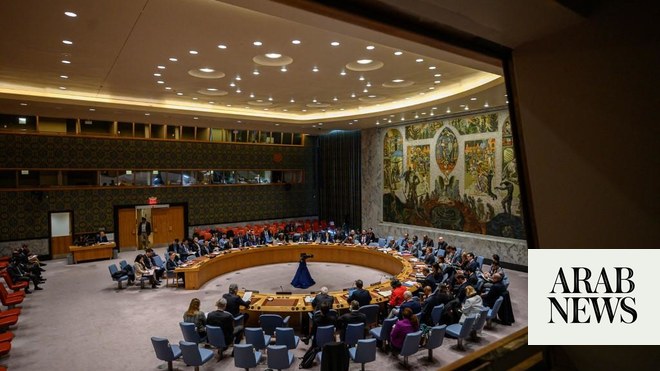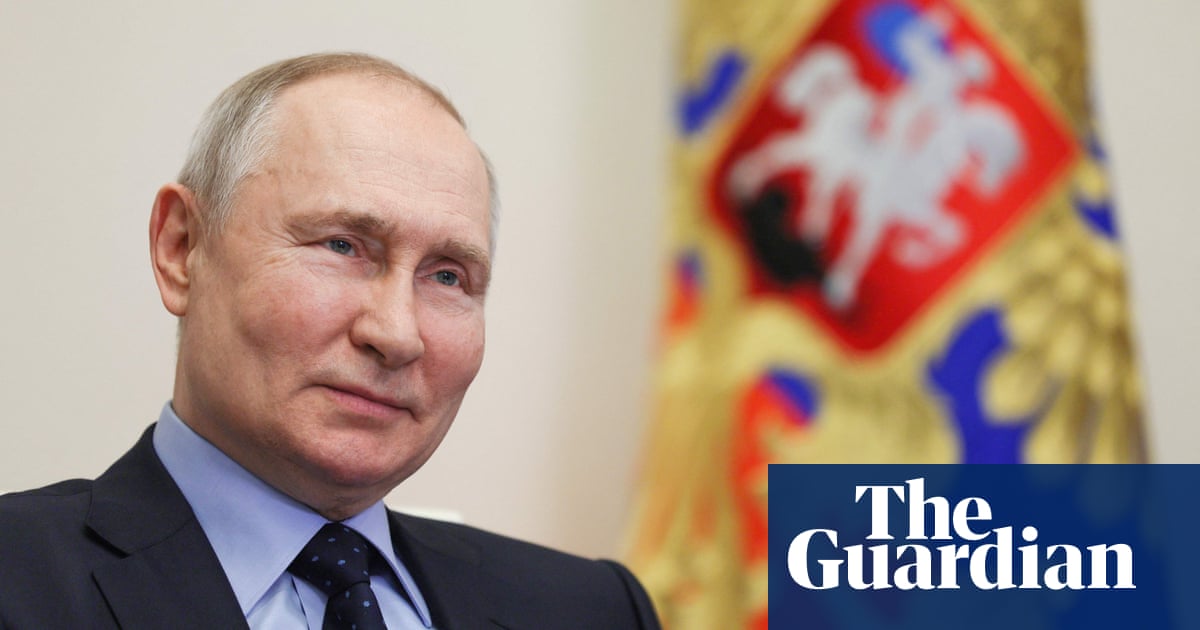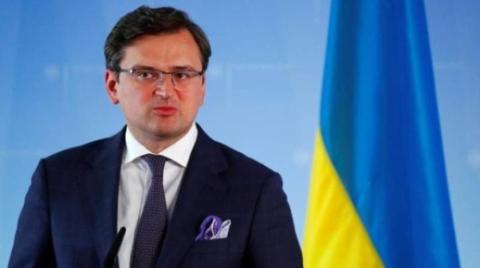
Nation’s fourth month-long stint heading the body includes packed agenda featuring several key Middle Eastern issues
The situations in Libya, Syria and Yemen will be addressed, along with the Palestinian issue
NEW YORK: As Tunisia assumes the presidency of the UN Security Council for the month of January, the timing could not be more apt. It comes as the North African nation celebrates the 10th anniversary of “the revolution of freedom and dignity,” in the words of Tarek Ladeb, the country’s permanent representative to the organization.
“The (Tunisian) Revolution laid the foundation for democracy, and added impetus to Tunis’s role on the international scene as an active advocate of the UN charter, with its chief principles of multilateralism and human rights,” he said on Monday as he outlined the council’s program for the month.
This month marks the fourth time Tunisia has assumed the presidency, which is held by members of the Security Council for a month at a time on a rotating basis. Ladeb vowed that the role would be carried out with “devotion (to) unity and consensus (and) a steadfast engagement of multilateralism.” In the same vein, he said he would work “to uphold the credibility of the Security Council, by enhancing its responsibility in the resolution and prevention of conflicts.”
The envoy lamented the “erosion of the council’s credibility, which was tarnished during the (past few) years due to a lack of implementation, and the ongoing violation, of its decisions.”
He added that he intends to redouble the efforts to fully implement Security Council Resolution 2532, which was adopted in July in support of a call by UN Secretary-General Antonio Guterres in March for a global ceasefire during the COVID-19 pandemic.
Not only is terrorism contributing to the escalation of conflicts and organized crime in many countries, said Ladeb, who also serves as chairman of the Security Council’s Counterterrorism Committee, but the world is facing new threats to peace and security. He warned, for example, that threats related to the pandemic, cyberattacks and climate change represent “multipliers of violence and danger in many regions.”
One of Tunisia’s main aims during its presidency will be to push for enhanced cooperation between the Security Council and regional and subregional organizations, such as the Arab League, he said.
In the Middle East, Syria will continue to be a key consideration for the council, with a particular focus this month on the use of chemical weapons, in addition to a meeting to discuss the political and humanitarian situations.
There will also be the latest monthly session on developments in Yemen, and a quarterly debate on the wider situation in the Middle East, including the Palestinian issue.
Ladeb said that Libya is also high on Tunisia’s agenda for the Security Council. He added that he hopes to capitalize on the “positive” outcomes of the first Libyan Political Dialogue Forum, which took place in Tunis in November, by establishing a mechanism to monitor the ceasefire in the country.
“Nominating a new (UN) special envoy for Libya is crucial now to sustain the political momentum and give a push to the political process and the settlement of the crisis,” said Ladeb.
“I think the secretary-general is thinking of suggesting a new name to replace (that of former UN Middle East envoy Nickolay) Mladenov, who couldn’t take (up the offer of) this position (as Libyan envoy) due to personal and family reasons, and the council will adopt it as soon as possible.
“Libya is (Tunisia’s) neighbor. We have a steadfast and principled position toward this crisis.”
Ladeb said the Palestinian cause, “which has been dealt heavy blows in 2020,” remains a top priority for Tunis, not only at the UN but in every forum around the world.
He vowed to create “momentum for the resumption of the peace process within the framework of international concerted efforts, mainly by the Middle East Quartet (the UN, the US, the EU and Russia) and the Security Council, paving the way for negotiations on internationally agreed terms of reference for peace.”
He reiterated that those terms must include the creation of a viable, contiguous Palestinian state and the right of return for Palestinian refugees.
Iran is another issue that has been a constant on the Security Council’s agenda, especially in the five years since the adoption of the Joint Comprehensive Plan of Action (JCPOA) in 2015. More commonly known as the Iran nuclear deal, it included an agreement by Tehran to limit its nuclear research in exchange for relief from international sanctions.
It was signed by the five permanent members of the Security Council (China, France, Russia, the UK and the US), plus Germany and the EU. President Donald trump withdrew from the agreement in 2018 and reimposed US sanctions against Tehran.
President-elect Joe Biden has promised a return by Washington to the JCPOA but hinted that negotiations will be required first to address Iran’s missiles program and its disruptive regional activities. The European signatories to the deal have also hinted as much.
Although the JCPOA is not scheduled to be part of the Security Council’s agenda for January, Ladeb said: “(The deal) has been a major diplomatic achievement that should be constantly supported and preserved. This agreement remains the best available vehicle for the imperative of achieving non-proliferation and ensuring stability in the region.
“A more constructive approach is needed in the coming weeks, through engagement in reviving the agreement in order to diffuse tensions and dispel this atmosphere of distrust in a way that helps in restoring cooperation.”












